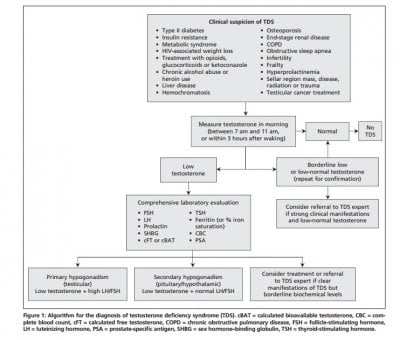Nelson Vergel
Founder, ExcelMale.com
From Medscape

The Canadian Men's Health Foundation has issued comprehensive new guidelines on the diagnosis and management of testosterone-deficiency syndrome in response to confusion in the literature about whether this syndrome even exists and whether testosterone-replacement therapy is safe.
Prior to developing the new guidelines, the Canadian Men's Health Foundation carried out a survey of Canadian physicians that suggested many are uncomfortable dealing with testosterone deficiency and uncertain about how to manage the condition.
"This was not surprising to someone like me, who has been interested in this subject for years, as a lot of the literature is very contradictory and there are very important differences of opinion in the management of testosterone-deficiency syndrome," guideline chair Alvaro Morales, MD, from the department of urology, Queen’s University, Kingston, Ontario, said in a podcast with CMAJ. The journal published the new guidelines October 26.
"Testosterone deficiency can occur at any age, but we are dealing mostly with men in whom there is decreasing testosterone production, who are most likely over the age of 45," Dr Morales noted in the podcast.
File is attached to this post.

The Canadian Men's Health Foundation has issued comprehensive new guidelines on the diagnosis and management of testosterone-deficiency syndrome in response to confusion in the literature about whether this syndrome even exists and whether testosterone-replacement therapy is safe.
Prior to developing the new guidelines, the Canadian Men's Health Foundation carried out a survey of Canadian physicians that suggested many are uncomfortable dealing with testosterone deficiency and uncertain about how to manage the condition.
"This was not surprising to someone like me, who has been interested in this subject for years, as a lot of the literature is very contradictory and there are very important differences of opinion in the management of testosterone-deficiency syndrome," guideline chair Alvaro Morales, MD, from the department of urology, Queen’s University, Kingston, Ontario, said in a podcast with CMAJ. The journal published the new guidelines October 26.
"Testosterone deficiency can occur at any age, but we are dealing mostly with men in whom there is decreasing testosterone production, who are most likely over the age of 45," Dr Morales noted in the podcast.
File is attached to this post.
















